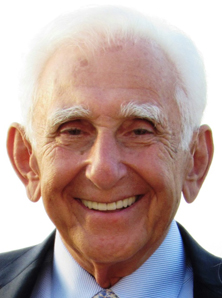
Anthony J. Asher began his career working at a title agency while attending law school. Together with his father he formed Guardian Title & Guaranty Agency while still a student. Guardian Title grew to be one of the largest title agencies in Greater Cleveland. Subsequently, Mr. Asher formed Weston Inc., an industrial real estate ownership firm that is the largest owner of industrial property in Northeast Ohio. Upon retiring in 1999, Mr. Asher passed the company on to his three sons Edward, James, and TJ, and two daughters Michelle and Suzanne. The company thrives under their ownership today, with Mr. Asher still serving as Chairman Emeritus. Mr. Asher is also the owner of Graystone Properties Inc., a real estate development company located in downtown Cleveland, Ohio. His invaluable experience is an asset to the Board and the Audit and Compensation Committees he serves.
Mr. Asher has been honored with two very distinctive lifetime achievement awards. The first was in May 2006, given by The Northern Ohio Chapter of The National Association of Industrial and Office Properties, for his contributions to the real estate industry. He is one of only three people to receive this prestigious award, and the only recipient to receive it while still living. He was also honored by the Northern Ohio Lebanese American Association for showing exceptional commitment to the Lebanese community and the preservation of their heritage. Mr. Asher was honor guest at USEK Graduation Ceremony 2015 held on July 18, 2015, during which he was awarded a Doctorate Honoris Causa in Business and Commercial Sciences.